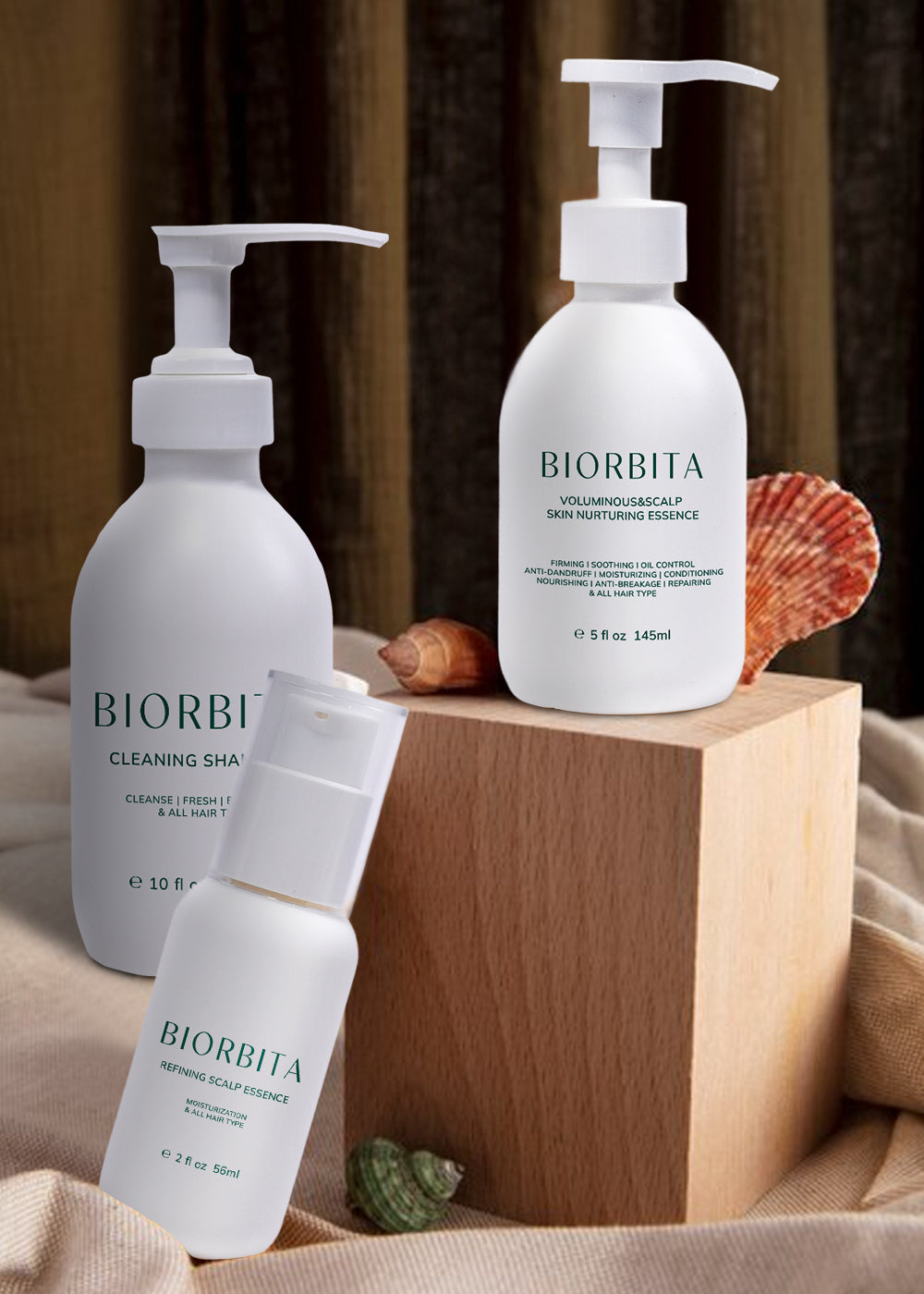
Is your scalp unhealthy? How to tell the difference
Share
- The importance of a healthy scalp
A healthy scalp is the foundation for vibrant hair. Just as fertile soil nurtures robust plants, a well-maintained scalp provides the ideal environment for hair to thrive. It serves as the anchor where hair follicles draw essential nutrients, ensuring strength, elasticity, and a lustrous appearance. Neglecting scalp health can disrupt this delicate balance, leading to issues like dullness, breakage, and even hair loss. Therefore, understanding and prioritizing the well-being of your scalp is key to cultivating and sustaining hair radiance.
- Misunderstandings about unhealthy scalp
Misconception 1: Focusing solely on hair care and neglecting the scalp's health is a common mistake. A healthy scalp is crucial for healthy hair.
Misconception 2:Some people believe washing the hair more frequently can solve scalp issues, but excessive washing may strip the scalp of natural oils, exacerbating problems.
Misconception 3: Assuming that using strong or medicated products will always improve the scalp. Sometimes, gentler options are more suitable, depending on the issue.
Misconception 4: Not all scalps are the same. What works for one person may not work for another. Tailor your approach based on your scalp type and specific concerns.
Misconception 5: While some home remedies can be beneficial, severe scalp issues may require professional intervention. Don't delay seeking help if problems persist.
Misconception 6: A healthy diet impacts scalp health. Neglecting nutritional needs may contribute to scalp problems.
Misconception 7: Underestimating the impact of stress on scalp health. Stress can contribute to various scalp issues, so managing stress is essential.
- Factors and Symptoms of an Unhealthy Scalp
Many factors can cause an unhealthy scalp, so what are the symptoms of an unhealthy scalp?We'll go over everything you need to know about an unhealthy scalp, as well as the best tips and products to help you balance it all out.
Dryness: If your scalp feels excessively dry and lacks moisture, it may lead to itching and discomfort.
Flakiness: Dandruff or flakes on your scalp could be a sign of an underlying issue, such as dry skin or a fungal infection.
Redness: Inflammation of the scalp can cause redness, indicating irritation or an inflammatory condition.
Itchiness: Persistent itching might be a result of dryness, dandruff, or an inflammatory skin condition.
Oiliness: An overly oily scalp may be due to an overproduction of sebum, potentially leading to issues like greasy hair and clogged hair follicles.
Tenderness or pain: Any discomfort or pain on the scalp might signal an underlying problem, such as infection or inflammation.
Odor: Unpleasant smells could be associated with bacterial or fungal overgrowth on the scalp.
1.4 How to remedy an unhealthy scalp
Already knowing the health of your scalp makes this problem easy to solve
Regular Washing: Use a mild, sulfate-free shampoo to cleanse your scalp regularly. Washing too frequently or infrequently can both be problematic, so find a balance based on your hair type and lifestyle.
Avoid Hot Water: Wash your hair with lukewarm water instead of hot water, as hot water can strip the scalp of natural oils, contributing to dryness.
Choose the Right Products: Select hair care products tailored to your scalp type. For example, if you have a dry scalp, use moisturizing shampoos, and for oily scalps, opt for products designed to control oil.
Scalp Massage: Gently massage your scalp while shampooing to stimulate blood circulation, which can promote a healthier scalp.
Conditioning: Use a conditioner appropriate for your hair type. Avoid applying it directly to the scalp if you have an oily scalp, focusing more on the hair ends. Balanced Diet: Ensure your diet includes nutrients essential for hair and scalp health, such as vitamins A, C, E, and omega-3 fatty acids.
Hydration: Drink enough water to maintain overall hydration, which can benefit your skin, including the scalp.
Avoid Heat Styling: Excessive use of heat styling tools can contribute to scalp dryness. Minimize their use and always use a heat protectant when styling.
Avoid Tight Hairstyles: Styles that pull on the hair, like tight ponytails or braids, can stress the scalp. Opt for looser hairstyles.
Consult a Professional: If problems persist, consult a dermatologist or trichologist to identify specific scalp issues and receive tailored advice.
1.5 Final Thoughts on an Unhealthy Scalp
If you have any of these problems with your hair. You need the right combination of moisturizers and nutrients to avoid your hair looking limp and lifeless, or your hair texture feeling hard or brittle, then you may be dealing with an unhealthy scalp. Put our expert tips in your rotation and use only the highest quality hair care products to help you balance it all out, like those from Biorbita. Our hair care will be good for your hair!